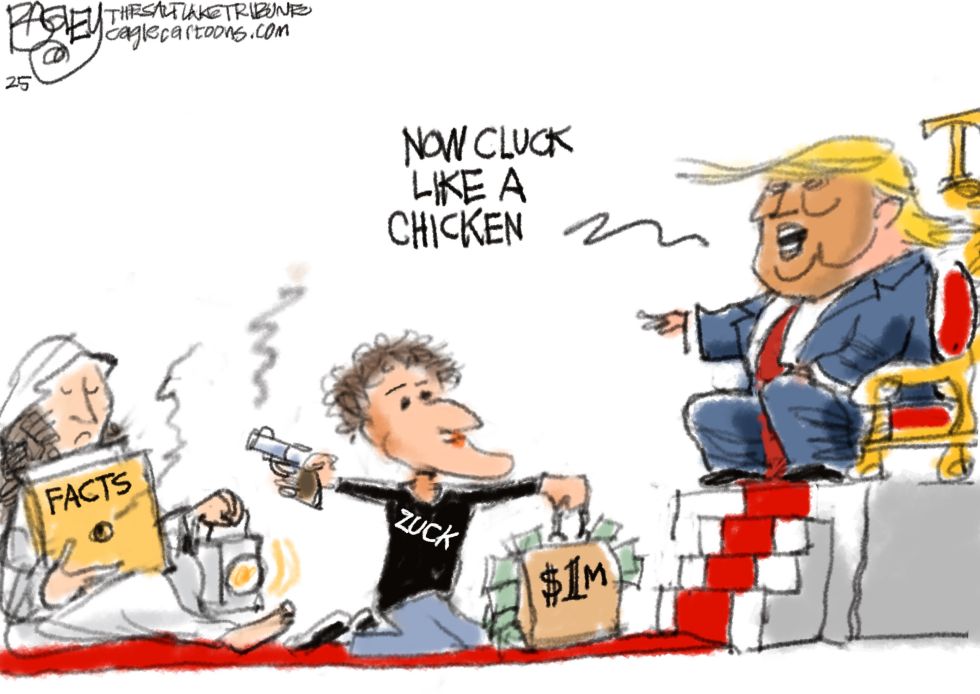Republicans have the power to stop Trump from crippling our government on his path to an American dictatorship. But instead, they’ve turned a Democrat-hating President loose in the White House, and Republicans have become his indentured servants with no chance of the bipartisan politics that America needs.
The Republican primaries can change that. Electing Republicans with loyalty to America instead of to Trump would bring back the bipartisan cooperation which allowed Congress to resolve the most divisive issues for many years until the advent of Donald Trump.
Even now, though, there are small glimmers of heroic bipartisanship. While Republicans were accommodating Trump’s obsession to undo everything President Obama accomplished, Senator John McCain stood up and warned them not to repeal Obamacare, and Senators Susan Collins and Lisa Murkowski joined him. And the repeal failed. Collins also voted against Trump’s $4.5 Trillion tax cut for the wealthy and it’s Medicare and Medicaid cuts.
It’s important to remember the Republicans who worked out the parties’ differences across bitter divides so many times throughout our history:
- In 1787, small state delegates fiercely opposed any plan to change the equal representation of states required under the Articles of Confederation, while populous states demanded that representation be proportional based on state populations. They compromised: proportional representation in the House and equal representation in the Senate.
- In the runup to the 1860 Republican convention, three warring candidates sought the nomination for president. President Lincoln appointed all of them to his Cabinet.
- In 1964, a civil rights bill passed the House and encountered widespread opposition in the Senate. It took the longest filibuster in Senate history until Democrat Mike Mansfield implored Republican Everett Dirksen to join him “in finding … the resolution of this grave national issue,” and they did, passing the landmark Civil Rights Act.
- Liberals and conservatives put aside a bitter division over welfare programs and compromised, enacting welfare reform in 1966.
- Bills to limit the food stamp program were introduced in the 1970s, and Democrats oppose them. Senators Bob Dole and George McGovern found a compromise, and the Food Stamp Act became law in 1977.
- In the 1980s the Social Security Trust Fund risked running a deficit. Measures to keep it solvent faced deep opposition. Enter Senators Patrick Moynihan and Bob Dole who worked together to defuse the partisanship plans, and Social Security reforms were passed and signed by President Reagan.
- In 1990, Republicans argued that the Democrat-sponsored American Disabilities Act was overaccommodating and placed undue burden on employers. Both parties came together and passed it.
- In 1997, conservatives opposed the State Children’s Health Insurance Program as a budget buster. Senators Ted Kennedy and Orrin Hatch together made changes and got it passed.
- President Obama’s Cabinet included two Republicans whose positions were markedly different from his own — Transportation Secretary Ray LaHood and Defense Secretary Robert Gates.
- Obama extended the Bush tax cuts, angering Democrats who felt they favored the wealthy. A bipartisan compromise extended unemployment benefits and avoided middle-class tax increases.
- The 2012 Jobs Act was, as House Majority Leader Eric Cantor said, “a rare legislative victory where both sides worked together and passed it with strong bipartisan support.”
- The 2013 Bipartisan Budget Act set discretionary spending halfway between what Senate Democrats and House Republicans wanted.
Congressional Republicans obey Trump because they fear being defeated by a primary challenger backed by him. Republican voters would be wise to replace Trump’s toadies with Republicans who oppose Trump. Otherwise the toadies are likely to be replaced by Democrats in the national election.







